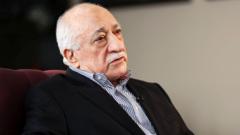Initially a supporter of Erdogan, Gulen’s relations soured in 2013 after corruption allegations surfaced against Erdogan's administration, leading to the government labeling Hizmet a terrorist organization. This estrangement culminated in the 2016 coup attempt, where Gulen was accused of being its mastermind, allegations he vehemently denied. Post-coup, Turkey experienced widespread purges targeting military personnel and government officials linked to Gulenists, significantly impacting the country’s political landscape.
Gulen's ideology emphasized a moderate, tolerant form of Islam focused on education, community service, and personal development. His movement established numerous educational institutions both in Turkey and internationally, fostering a global network of followers. Throughout his life, Gulen straddled the complex line of being a revered religious leader and a target of political persecution, navigating a turbulent political environment that resulted in his lifelong exile in the US.
Despite the turmoil surrounding his legacy, Gulen maintained a commitment to democratic ideals, urging his followers to support governance aligned with the rule of law. Gulen’s passing may spark renewed debate in Turkey regarding his impact on the nation’s political trajectory and the ongoing discourse around the 2016 coup attempt and its ramifications.
As Turkey continues to grapple with the political aftermath of the coup and the tumultuous relationship between Erdogan’s administration and Gulen's Hizmet movement, the cleric's death marks the end of an era defined by ideological division and significant socio-political consequences.
Gulen's ideology emphasized a moderate, tolerant form of Islam focused on education, community service, and personal development. His movement established numerous educational institutions both in Turkey and internationally, fostering a global network of followers. Throughout his life, Gulen straddled the complex line of being a revered religious leader and a target of political persecution, navigating a turbulent political environment that resulted in his lifelong exile in the US.
Despite the turmoil surrounding his legacy, Gulen maintained a commitment to democratic ideals, urging his followers to support governance aligned with the rule of law. Gulen’s passing may spark renewed debate in Turkey regarding his impact on the nation’s political trajectory and the ongoing discourse around the 2016 coup attempt and its ramifications.
As Turkey continues to grapple with the political aftermath of the coup and the tumultuous relationship between Erdogan’s administration and Gulen's Hizmet movement, the cleric's death marks the end of an era defined by ideological division and significant socio-political consequences.



















